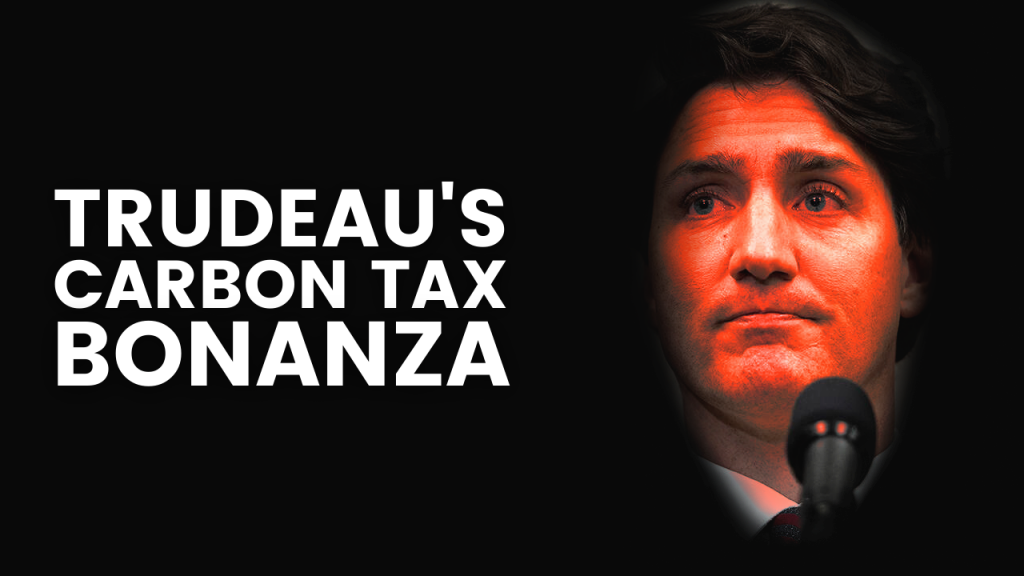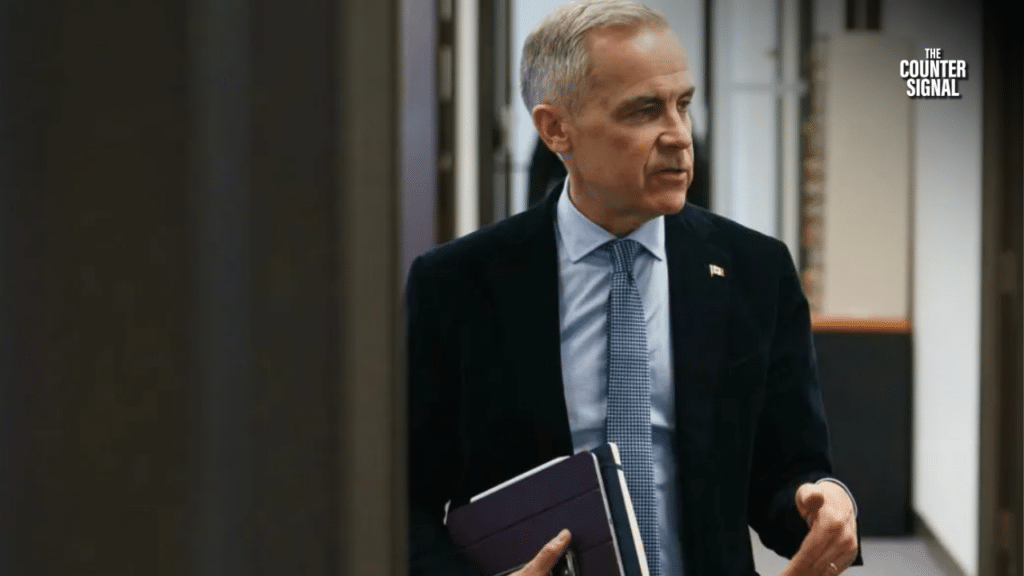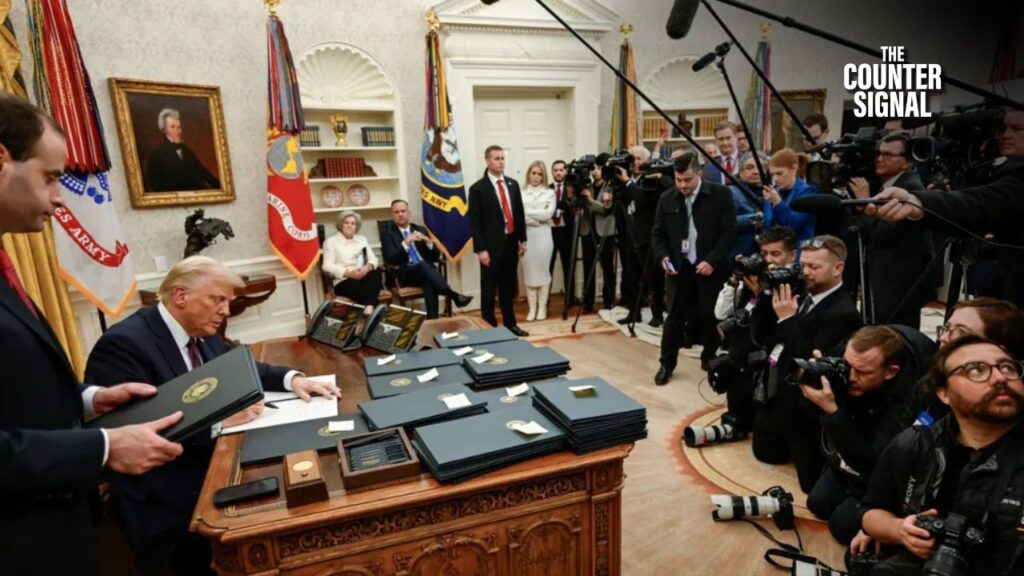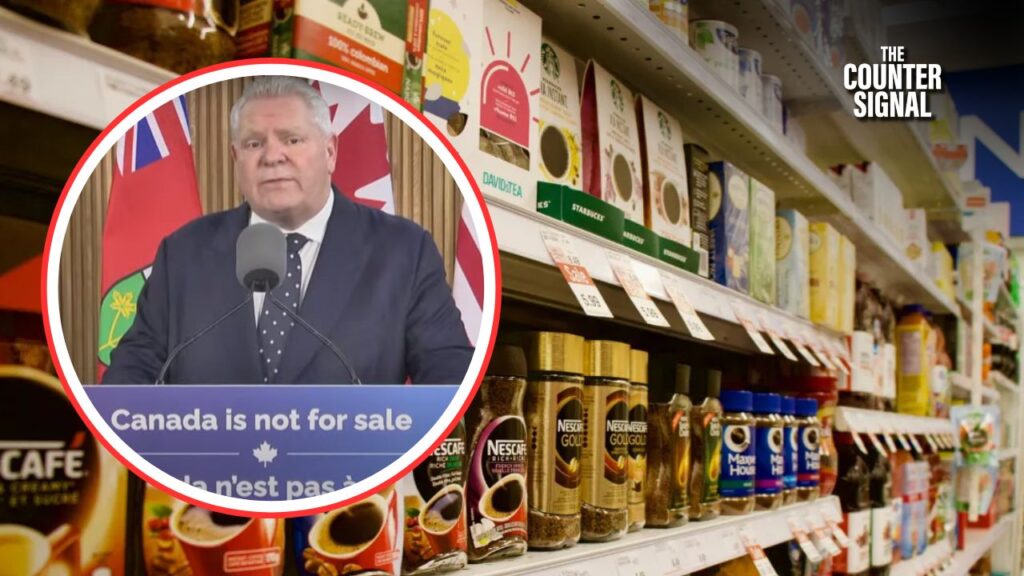
The Canadian Taxpayers Federation released a report showing current gas prices would cost Canadian drivers a $170 per tonne carbon tax and the federal government’s planned second carbon tax.
“Drivers are feeling the pain of high gas prices, and the carbon tax hikes would make these prices more painful,” said Franco Terrazzano, Federal Director with the CTF. “The federal carbon tax hikes would push gas prices to more than $2 per litre in some cities. These sky-high gas prices should be a wake-up call for politicians to prioritize relief at the pumps.”
Between 2018 and 2022, the federal carbon tax backstop increased by $10 per tonne per year, reaching $50 per tonne in 2022. Despite the COVID-19 pandemic, the federal government implemented its planned carbon tax hike, raising it to $40 per tonne on April 1, 2021.
According to the Canada Revenue Agency, the carbon tax increase translates to 8.8 cents per litre of gasoline.
Following back-to-back-to-back annual carbon tax hikes, the Parliamentary Budget Officer (PBO) estimated in a report released in late June that it would add $120 per tonne in carbon tax by 2030. Passed in 2018, the Greenhouse Gas Pollution Pricing Act capped the tax at $50 per tonne.
But the federal carbon tax will further increase from $50 per tonne in 2022 by $15 per year until it reaches $170 per tonne in 2030. The $170 per tonne carbon tax will translate to a 39.6 cents per litre increase in the price of gasoline.
The federal government is also planning on imposing a second carbon tax through fuel regulations, which could increase the price of gas by up to 11 cents per litre.
The proposed Clean Fuel Regulations mandate liquid fossil fuel primary suppliers, including producers and importers, to reduce the carbon intensity (CI) of the liquid fossil fuels they produce and import into Canada from 2016 CI levels by 2.4 gCO2e/MJ in 2022, increasing to 12 gCO2e/MJ in 2030. It would also establish a credit market under the Government of Canada’s one-for-one rule that increases costs on average by $350,100 for fossil fuel producers and importers while reducing costs by $55,200 on average for renewable fuel producers and importers.
To exceed the 2030 Paris targets, the PBO advocated for tightening the Output-Based Pricing System (OBPS) standards to reduce Canada’s emissions by 96 Mt in 2030. Increasing the federal fuel charge to $170 per tonne and tightening OBPS will help Canada achieve over half of the 168 Mt reduction projected in Budget 2021.
To achieve the 168 Mt reduction by 2030 projected in Budget 2021 and exceed the Paris target, the PBO estimates that announced non-price policies will have an effective cost of $91 per tonne, in addition to the $170 carbon tax. These regulations and incentives to develop and adopt lower emissions technologies assume that the measures chosen have the lowest cost.
On April 22, 2021, the government announced its intention to reduce Canada’s GHG emissions below the 468 Mt projected in Budget 2021 to 40 to 45 percent below 2005 levels. But modelling for Budget 2021 included the federal climate policy published in December 2020, forecasting a national emissions reduction of only 36 percent below 2005 levels by 2030.
In April, the federal government’s announcement to further reduce emissions by another 30 to 66 Mt by 2030 will require further action. However, the federal government did not announce policy measures in the report to achieve this additional reduction in emissions.
As of May 2021, the retail price for regular unleaded gasoline in the 18 metropolitan areas surveyed by StatsCan averaged 134.4 cents per litre.
According to the October 2021 Consumer Price Index, energy prices rose 25.5 percent year over year in October, primarily driven by increased gasoline prices. Compared with October in the previous year, consumers paid 41.7 percent more for gasoline, as shortages in other energy sources, such as coal and natural gas, led major economies to use more oil for power generation. This contributed to higher prices at the pump.
“Taxes already cost Canadians big time at the pumps, and that tax bill will only grow with carbon tax hikes,” said Terrazzano. “Politicians looking to improve affordability must provide tax relief at the pumps, and that starts with scrapping the carbon tax.”
According to Canadians for Affordable Energy president Dan McTeague, British Columbia and Newfoundland and Labrador record among the highest gas prices in the country, adding provinces could see staggering numbers.
“You can see a scenario playing out where we get awfully close to $2 a litre in those regions with average prices in Canada probably, at minimum, $1.75 a litre,” he said.
The CTF found the double-whammy carbon tax would cost drivers 49 cents per litre of gasoline in total by 2030 in St. John’s, Newfoundland and Labrador, with prices at the pumps estimated to reach $2.10 per litre.
On April 1, 2021, British Columbia raised its carbon tax from $40 to $45 per tonne and would increase it to $50 per tonne on April 1, 2022. Likewise, Newfoundland and Labrador increased its carbon tax on November 7, 2020, from $20 per tonne to $30 tonne.
The first federal carbon tax currently costs nearly 10 cents per litre of gasoline in BC.
BC, which has a Low Carbon Fuel Standard in place, trades credits for about $475. If the planned second carbon tax uses that as a standard, McTeague estimates every province except BC could see an immediate increase of 16 cents per litre on December 1, 2022.
The CFS program mandates suppliers of liquid fuels, such as gasoline and diesel, to gradually cut the amount of carbon in their products to reduce greenhouse gas emissions. If suppliers cannot meet reduction targets, they can purchase credits from other companies producing cleaner fuel, or suppliers can pay into a compliance fund.
McTeague contends that rising oil prices, the state of the Canadian dollar, provincial taxes and the federal government’s Clean Fuel Standard (CFS), which comes into effect December 1, 2022, could result in gas prices skyrocketing upwards of a toonie per litre.
“I think $100 a barrel is not unthinkable, and it’s quite likely to be through 2022,” he said. “So that would add to the average price of gas in Canada, which is about $1.47, that would add probably 18 cents a litre.
“So now you’re in the $1.65 range. You have the federal carbon tax of 2.21 cents, plus HST, so 2.3-2.4 cents,” he continued. “Then you have on top of that the Clean Fuel Standard. So now you’re up to about $1.82, $1.83 a litre. Just to get to $100 a barrel.”
The federal carbon tax currently increases the price of gasoline by 8.84 cents in Alberta. The planned $170 per tonne federal carbon tax and second carbon tax would cost about 49 cents per litre of gas in total.
With October gas prices averaging $1.42 per litre in Alberta, by 2030, prices could exceed $1.84 per litre. The total cost to fuel up a sedan in 2030 would amount to $102.88, while a minivan and pickup total $139.62 and $180.04, respectively.
The Canadian Energy Centre found Canadians will pay up to 350 percent more at the pump by 2030. The typical Canadian motorist will pay up to $900 annually to cover the $170 per tonne carbon tax. Depending on the province and type of vehicle, costs at the pump could increase by 297 percent to 350 percent higher.
This year, the portion motorists pay at the pump in carbon tax ranges from $161 and $257, or about 7 percent of the fill-up costs. For example, the Dodge Ram 1500 has $3,931 in annual fuel costs in 2021, with the federal carbon tax comprising $257 of that cost. While the Honda Civic has $2,453 in annual fuel costs this year, with the federal carbon tax comprising $161 of that cost.
By 2030, the portion paid by motorists is expected to be between $723 and $1,158, or about 24 percent of the fill-up costs, assuming that the remaining components of the gasoline cost structure stay the same.
At that time, the Dodge Ram 1500 is expected to incur $4,832 in annual fuel costs in 2021, with the federal carbon tax comprising $1,158 of that cost. While the Honda Civic has $3,015 in annual fuel costs this year, with the federal carbon tax comprising $723 of that cost.










